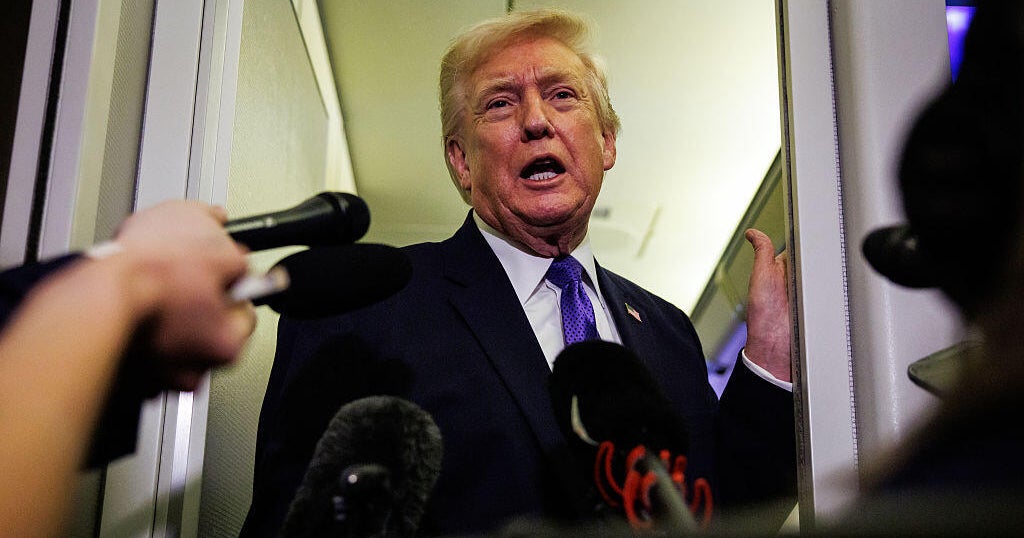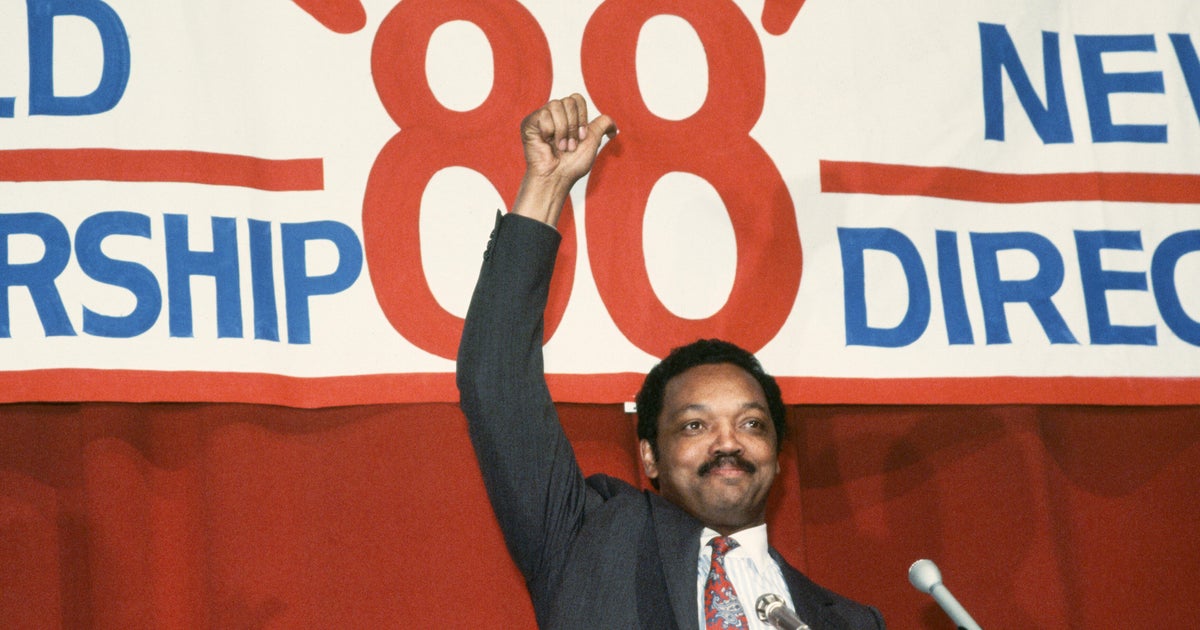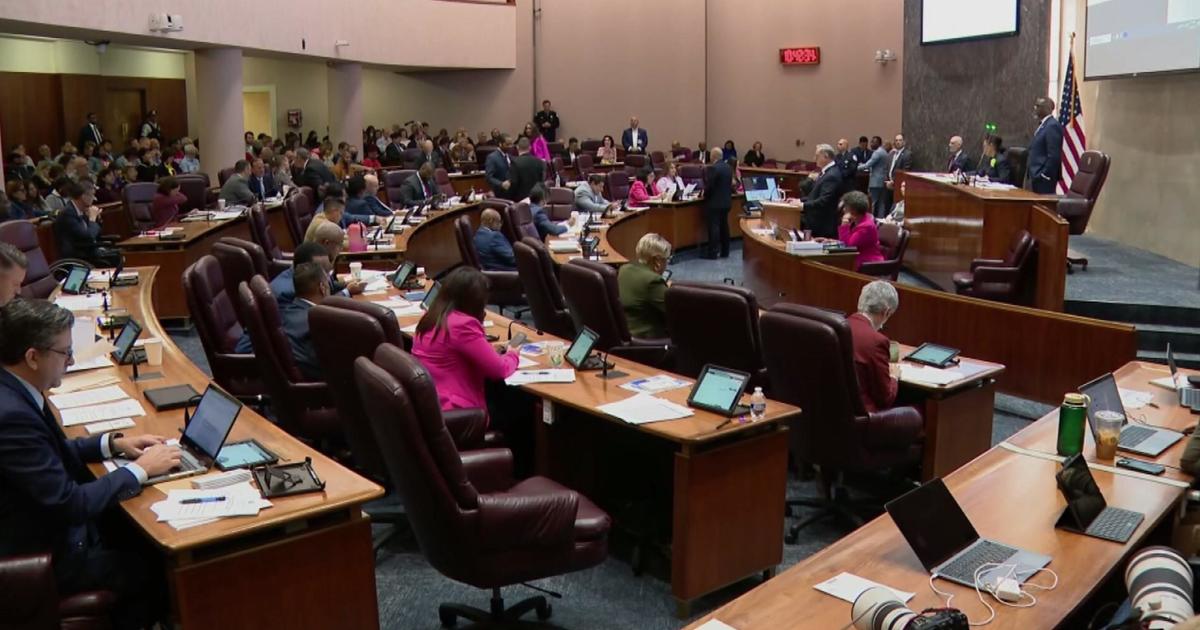Trump lost the presidential vote in Illinois, but still made gains over previous two campaigns
CHICAGO (CBS) -- Donald Trump's projected victory over Kamala Harris in the 2024 presidential election not only marks an improbable comeback for the former president, but marked arguably his strongest performance in any of his three presidential races, including in Illinois.
While votes are still being counted in some battleground states, President-elect Trump is not only leading the popular vote for the first time, but if he pulls off wins in Arizona and Nevada, where he is leading Harris, he would also claim a larger Electoral College victory than when he won his first term in office in 2016, despite losing the popular vote to Hillary Clinton.
That trend is reflected in Illinois, where Trump — who is set to become the first convicted felon to win the presidency — is having his best performance of any of his three runs for president.
Although Vice President Harris is projected to have defeated Trump in Illinois, her margin of victory in Illinois won't be nearly as large as President Joe Biden's in 2020 or Hillary Clinton's in 2016.
As of Thursday morning, Harris was leading Trump 53.4% to 45.0% in Illinois. In 2020, Biden defeated Trump in Illinois 57.54% to 40.55%, and in 2016, Clinton topped Trump in Illinois 55.83% to 38.76%.
Harris would be the first Democrat to win Illinois by less than 10 percentage points since the last time a Republican won in Illinois in 1988. Her current support of 51.3% would be the worst performance for a Democrat in Illinois since Bill Clinton won with 48.6% of the vote in 1992.
While votes are still being counted, Trump already has won more votes in Illinois than he did in 2016, and is only slightly behind his 2020 vote total in Illinois, with an unknown number of uncounted mail-in ballots yet to be counted. As of Thursday morning, Trump had 2,393,695 votes in Illinois, compared to 2,466,891 in 2020, and 2,146,015 in 2016.
At the same time, Harris so far has won fewer votes in Illinois (2,843,637 so far) than either Biden in 2020 (3,471,915) or Clinton in 2016 (2,977,498), although that could change as more mail-in ballots are counted.
Trump has seen a steady growth in support in Chicago since 2016. In the 2016 race against Clinton, Trump won 12.41% of the vote in Chicago, with 135,317 votes. In 2020, he won 15.83% of the vote in Chicago, with 181,234 votes. So far in 2024, he has won 21.85% of the vote in Chicago, with 189,170 votes, and an unknown number of mail-in ballots yet to be counted.
At the same time, Harris significantly underperformed in Chicago compared to Biden in 2020 and Clinton in 2016. So far, Harris has won 76.95% of the vote in Chicago, with 666,206 votes. Biden won 82.53% of the vote in Chicago in 2020 with 944,735 votes, and Clinton won 83.73% of the vote in Chicago in 2016, with 912,943 votes.
Trump also made significant vote gains in key battleground states compared to 2020 and 2016.
As of Thursday morning, Trump had 2,800,060 votes in Michigan, compared to 2,649,842 in 2020 and 2,279,543 in 2016. In Wisconsin, he had 1,697,237 votes in the 2024 election, compared to 1,610,184 in 2020, and 1,405,284 in 2016. In Pennsylvania, Trump had 3,477,222 votes as of Thursday morning in the 2024 election, compared to 3,378,263 in 2020 and 2,9770,773 in 2016. In North Carolina, as of Thursday morning, Trump had 2,876,141 votes in the in 2024 election, compared to 2,758,775 in 2020, and 2,362,631 in 2016.
Nationally, Trump's victory was propelled by voters dissatisfied with the economy, particularly the impact of inflation, according to CBS News exit poll results.
Harris underperformed with key parts of the Democratic coalition, while Trump made some inroads. He also continued to excel with some groups who have historically backed him, keeping his coalition largely intact.
Exit polling shows Trump won overwhelmingly among White voters without a college education and made inroads with Black and Latino men.
Throughout his two-year campaign, Trump hammered President Biden, and later Harris, on inflation and the economy. It's a message that resonated with voters, whose views on the economy are more negative now than they were in 2020, despite the pandemic that brought the economy to a halt during his presidency.
Nationally and across the battleground states, on the question of whether voters are better off now than they were four years ago, more voters said they are financially worse off.
NOTE: Voting data in this article may have changed since it was first published










